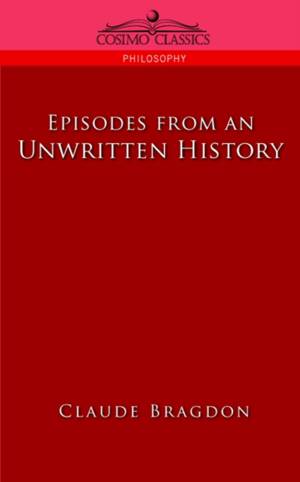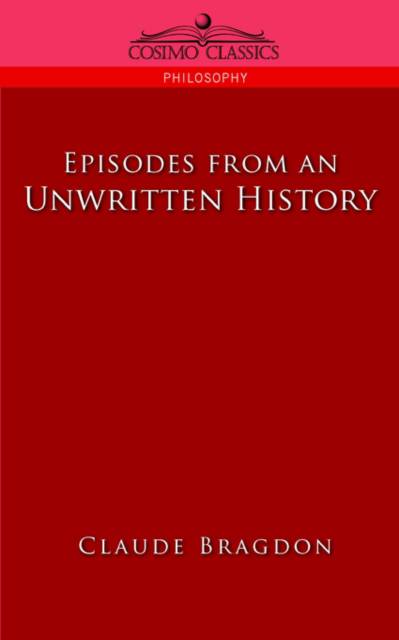
- Afhalen na 1 uur in een winkel met voorraad
- Gratis thuislevering in België vanaf € 30
- Ruim aanbod met 7 miljoen producten
- Afhalen na 1 uur in een winkel met voorraad
- Gratis thuislevering in België vanaf € 30
- Ruim aanbod met 7 miljoen producten
Zoeken
Omschrijving
"Suddenly the thought came into my mind: 'What if this be but hallucination...' -from "The Arabian Nights in New York" The philosophical discipline of theosophy enjoyed a flowering in the late 19th century, a spiritual reaction to the materialism aggressive scientific exploration and the newly ascendant corporate culture seemed to be promoting. In 1910, Claude Bragdon published this overview of the roots of theosophy, and it remains an important document of this influential movement, key reading for anyone interested in the origins and aims of early New Age thought. Though known primarily as an architect and, later, as a stage designer, Bragdon dabbled in mysticism, and brings his well-deserved renown as a delightful, charming writer to this little volume. Other works by Bragdon available from Cosimo Classics: More Lives Than One, The Beautiful Necessity, Architecture and Democracy, and A Primer of Higher Space (The Fourth Dimension). American architect, stage designer, and writer CLAUDE FAYETTE BRAGDON (1866-1946) helped found the Rochester Architectural Club, in the city where he made his greatest mark as a building designer with structures including Rochester Central Station, Rochester Institute of Technology, and the First Universalist Church; he also designed Peterborough Bridge in Ontario. In later life, Bragdon worked on Broadway as scenic designer for 1930s productions of Cyrano de Bergerac and Hamlet, among others.
Specificaties
Betrokkenen
- Auteur(s):
- Uitgeverij:
Inhoud
- Aantal bladzijden:
- 112
- Taal:
- Engels
Eigenschappen
- Productcode (EAN):
- 9781596053601
- Verschijningsdatum:
- 1/11/2005
- Uitvoering:
- Paperback
- Formaat:
- Trade paperback (VS)
- Afmetingen:
- 127 mm x 203 mm
- Gewicht:
- 127 g

Alleen bij Standaard Boekhandel
+ 46 punten op je klantenkaart van Standaard Boekhandel
Beoordelingen
We publiceren alleen reviews die voldoen aan de voorwaarden voor reviews. Bekijk onze voorwaarden voor reviews.







